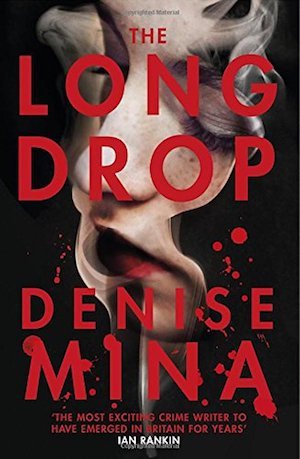
The story focuses on two men, William Watt and Peter Manuel. Watt is an ambitious businessman, clawing at the social ladder, making money through his bakeries and buying up local property. Manuel is a convicted rapist and a proven liar. Watt is on a fishing trip just 90 miles from Glasgow when he receives an urgent call to get home. His wife, sister-in-law and daughter have been shot dead in their beds in the family home. The police fancy him for it and he ends up in Barlinnie, Glasgow’s notorious prison. It soon becomes apparent the charges won’t stick and Watt, now released, pursues his own investigation of the ‘Burnside Affair’.
Six months later and Manuel is on trial for eight murders including the three women of the Watt family. It is 1958 and Manuel faces the long drop. It is the preferred technique for judicial hanging. Get it right and death is instantaneous as the vertebrae cut the spinal cord. Get it wrong and a slow death by asphyxiation or a messy beheading could follow. We switch between the court case and the events around the end of 1957 where Mina focuses on the relationship between Watt and Manuel.
Neither of the two main characters are particularly likeable and it is grimly fascinating to sit in on their conversations. We follow them through a night of drinking together as they tour around Glasgow. There is a macabre quality as they dance around their own egos and desires. Watt stumbling through an ego-haze of alcohol and Manuel, devoid of empathy, unable to read his fellow man. Manuel is an arrogant psychopath; there’s no insight, no human connection. These are exquisitely drawn scenes and Mina’s prose pulls you in. It is spare, precise and frequently devastating.
There are many poignant moments – the brief cameo from the father of a murdered girl is affecting but Mina also captures the humour of daily life amongst the sadness. The 1950s ooze off the page; the blackened tenements and reeking slums. This is a smut-filled Glasgow with the constant background music of violence. A cameo by Billy Fullerton highlights Glasgow at its most malignant: “In a city that reveres angry men Billy Fullerton is a god.” As Mina reminds us, he served time for wife-beating in an era when women were afforded few protections against domestic violence.
This novel is unapologetically Scottish in origin and diction. That said, the vernacular is kept light and accessible – although the wonderful phrase “as small as a midge’s oxter” might baffle a few. If this is Scotland it is no clichéd tartan tin of shortbread with pictures of the Highlands. The brutality of the Glaswegian underbelly is exposed. This is not noir but the attitudes of the day are unflinchingly depicted; the casual violence is all pervasive in 1950s Glasgow.
The narration has an omniscient quality and it feels as if Mina is sitting us down to tell us the tale. Her style is wide-ranging and modern but not judgemental and the story is laid bare for us to judge. We all know that Mina does not lack talent and it is clear from the first few pages that she has rolled up her sleeves and is flexing her literary muscles. The Long Drop is an atmospheric dive into the menace and folly of men. It is a delicious evocation of some dark days with tone-perfect dialogue. This is a relatively short novel but, like a classy single malt, The Long Drop is one to savour.
This book is released 2 March 2017. For our range of Scottish crime fiction articles click here.
Harvill Secker
Print/Kindle/iBook
£12.08
CFL Rating: 5 Stars